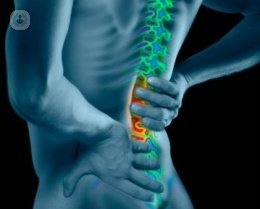Are you compliant or defaulting from treatment? Take the test!
Written by:The service of Nephrology Hospital Perpetuo Socorro is the pioneer in Spain in the investigation of this problem in patients. In general, the highest levels of performance observed in treatments requiring medication directly monitored and disorders with acute onset. The lowest, in chronic patients in whom there is no discomfort or immediate risk and where treatment requires a change in your lifestyle.

Adherence, also called adherence is a broad concept that refers to the degree to which the patient follows the commitment or covenant established with healthcare professionals (doctors, nurses, etc.) who care for you, regarding medicines to take , monitoring of changes in diet or lifestyle in general, experts say in Nephrology .
Are you achiever treatment or not? Fill out this questionnaire

You're noncompliant if you answered any of these questions as follows: 1: yes, 2: no, 3 yes, 4: yes, 5: C, D or E, 6: more than two days. Any response in the sense of non-compliance is considered noncompliant.
If your answer has come that are noncompliant, you are part of that 50% of people who do not follow the recommendations of health professionals, and this has important implications.
What consequences does the therapeutic failure?
1) First and the most important result, if the drug was prescribed to achieve objectives, do not take it or take it wrong would make, of course, not the objectives for which it had raised the treatment become available , which would produce relapses and increased number of hospital admissions and, eventually, death. Faced with this "apparent lack of response" if doctors and nurses believe that the patient takes their medication or making diet properly, the logical approach would be to increase medication doses or add new drugs, with this all you get is to increase the complexity of the treatment and the risk of side effects.
2) waste of resources since the (or the patient) health system is paying a drug that does not really take or taken incorrectly.
Tips to improve adherence
- Ask the health care professional to give much information as possible about the disease, or how the drug works has recommended. This will help us understand the importance of taking treatment correctly.
- Request simplify our treatment and we prescribe the minimum number of drugs possible to make it easier to take them correctly.
- We should not go from consultation to be clear about the following: What medications should I take ?, why ?, when do I take ?, how ?, how long I should take?
- Often, when talking with acquaintances, neighbors, friends, family, etc.. there may be fears or prejudices against any medications that can sometimes lead to stop taking. It can also happen to have the feeling of having any side effects to any medication and we decide not Take It Anymore. We must explain all this with confidence to a health professional to agree on what is best in each case.
- If we understand complicated medication and schedules we can ask a relative or friend to accompany us to also explain the treatment.
- If we are older, we take a large number of drugs and have little help at home, we can use a tool called personalized dosing system (SPD). It consists of a weekly cartons prepared in the pharmacy where the various tablets, capsules are deposited, etc.. depending on the hours and days of the week.
- If we find it difficult to remember to take medications, we can use alarms, alarm clocks, reminder notes, or simply leave them in a visible place (kitchen, nightstand).


